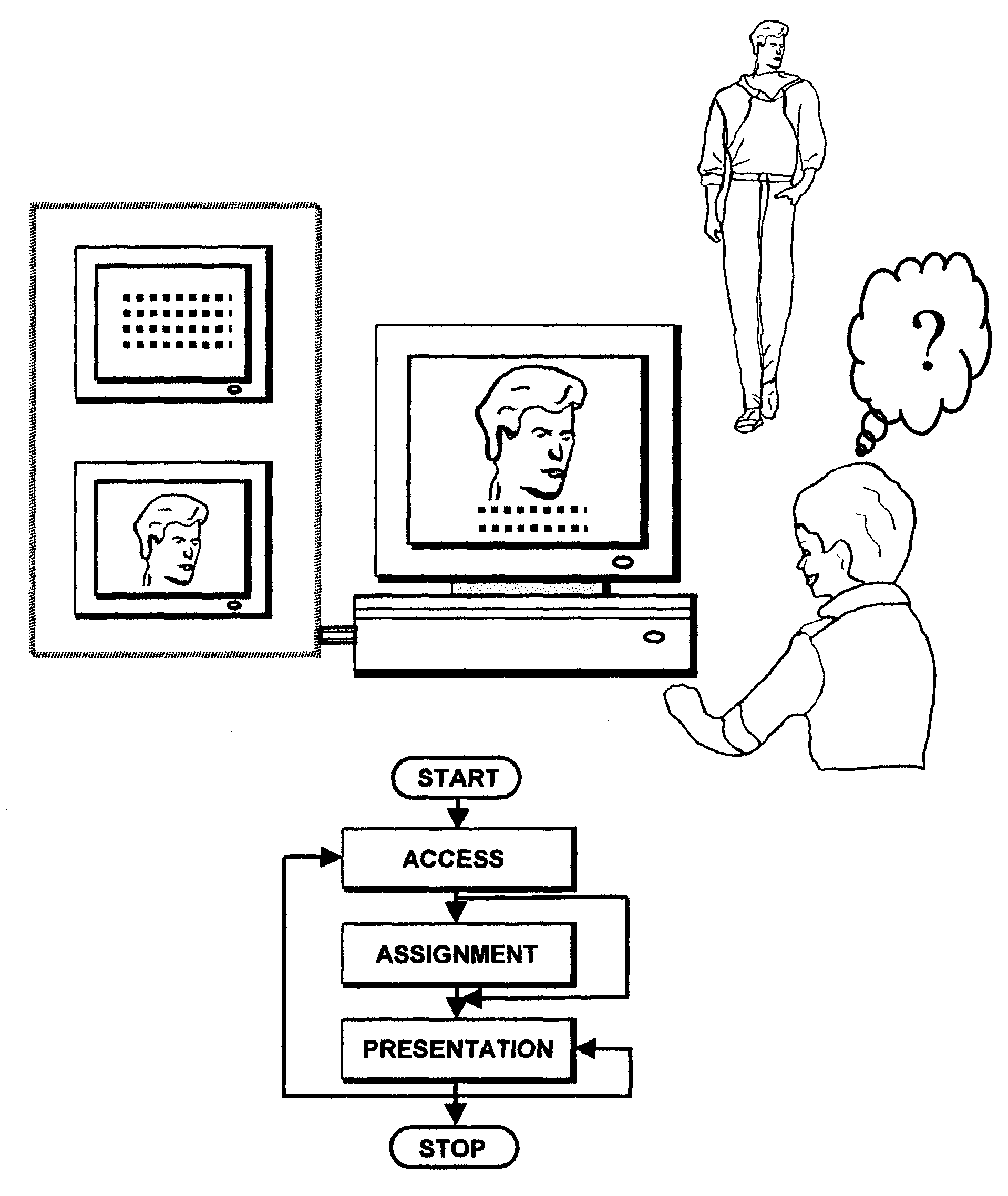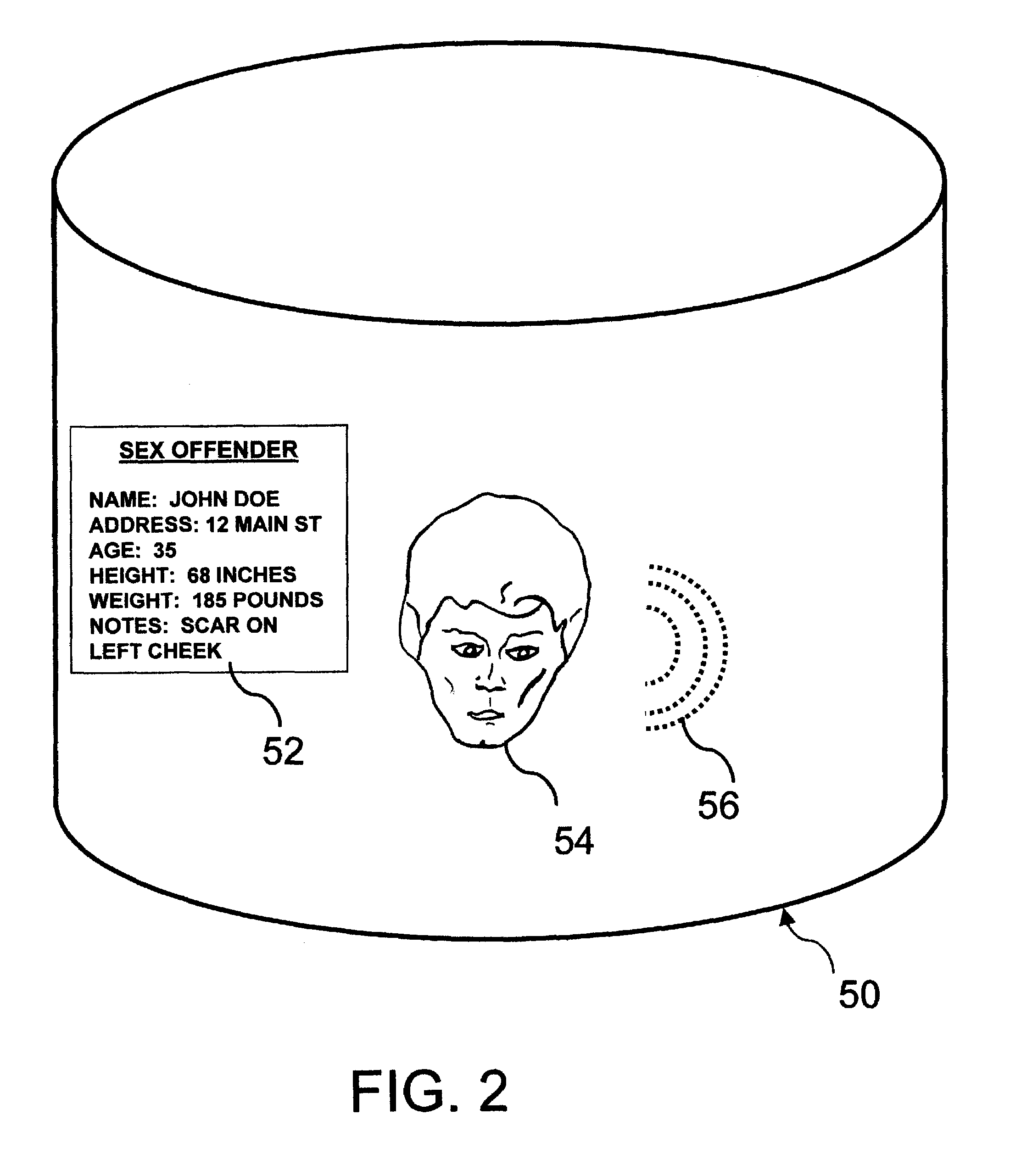The world can be a dangerous place, with the presence of terrorists, criminals, sex offenders and other undesirable individuals.
However, day after day we turn on the news and are greeted with a high terrorist
threat or other threats to our well being.
However, the police were not allowed to disclose the presence of this child molester because release of this information was prohibited.
Although Megan's Law sounds effective on the surface, the actual results fall short of the intent.
The existing sex offender registries lack features to ensure users are protected.
Unfortunately, the concerned citizen will find no uniformity amongst sex offender and other databases.
Additionally, accessing these data sources manually can require large amounts of time.
Parents cannot be with their children twenty-four hours a day.
Although police are given the task of notifying people and organizations of high risk offenders in their area, we know that our police forces are stretched thin and one quarter of offenders aren't living where they are supposed to.
As one of the companies states in its advertisement, the
system is “designed for law
enforcement, by law
enforcement.” These systems are not available to the public—the inventor was not able to order a brochure on these products without being a government agency.
Expensive Alerting Systems With Limited Success
Unfortunately, the barrage of telemarketing has put most people on notice to telephone intrusions into the home.
Use of the phone to convey information through recorded messages is limited, and graphical and other characteristic data such as hardcopy is wanting.
If one were stuck in a traffic jam and alerted by beeper about that traffic jam, the warning would not be of much use.
These systems do little to prevent incidents and they are expensive after the fact attempts to address the security problem.
Such existing systems as facial recognition
software, video surveillance,
Global Positioning System (GPS)
wireless locator systems, and others require expensive systems that are out of reach of the average citizen.
Despite its interesting name, this device has serious limitations in addition to cost and having a “scarlet letter” strapped to an unwilling person.
As one researcher noted, “Unfortunately, everyone encounters normal day-to-day stress.
Until further testing, it's unclear whether this gadget will go off each time a sex offender opens his Visa bill.” Frequent false alarms combined with other limitations make this device an impractical, entertaining oddity.
However, given the high cost of television, only limited time can be spent on any one person, which reduces chances for recognition of featured individuals.
If a person is at work or has another commitment, the information will be missed.
For these reasons, radio in its current state is not suited for identifying people and objects of interest.
Unfortunately, this method combines the potential vice of gambling with the altruistic motive of locating people.
With litigation costs reaching new levels, an aspiring pro se person may use such games to acquire just enough knowledge to be dangerous.
With limited utility and excitement, it is no wonder such games have not come close to the success of a game like “Monopoly.”
Unfortunately, such cases as the Washington D.C. snipers indicate clearly that public knowledge and involvement are essential elements of our security.
With hundreds of billions expended and our entire government, military and intelligence agencies engaged in the effort, unsettling questions arise in our war on terrorism and overriding desire for security.
It is humbling that the raw, unchained energy of a powerful nation is unable to resolve these potent threats.
Disadvantages of the Prior Art
(a) They are expensive and require extensive hardware solutions, placing them out of reach of most of the populace.
(b) They are a “push type”
system—providing information rigidly and without the user's consent or input.
(c) They require an extensive amount of law
enforcement involvement and effort.
(d) They combine an undesirable activity, such as gambling, with the desirable outcome of altruism and security.
(e) They are not very effective in solving the need. A haphazard “shot in the dark” image on a television may simply not reach the right person.
(f) They do not present information in such a way as it will be recalled when needed.
(g) They rely on data sources which are not being kept up to date due to lack of manpower and public interest.
(h) They are not fulfilling or entertaining enough to ensure people will use them on a continual basis.
(k) They violate civil freedoms of certain individuals.
(I) They do not leverage the public
demand side to solve problems.
 Login to View More
Login to View More  Login to View More
Login to View More 


